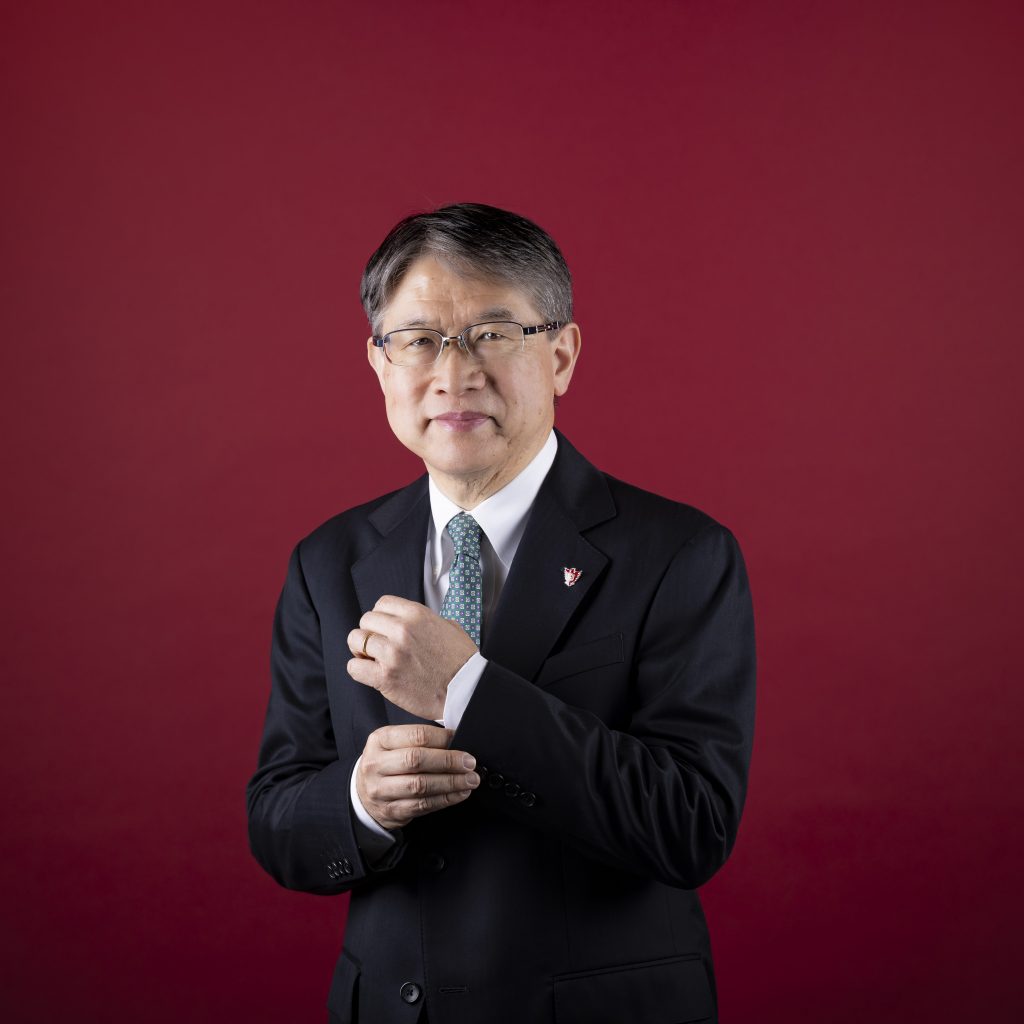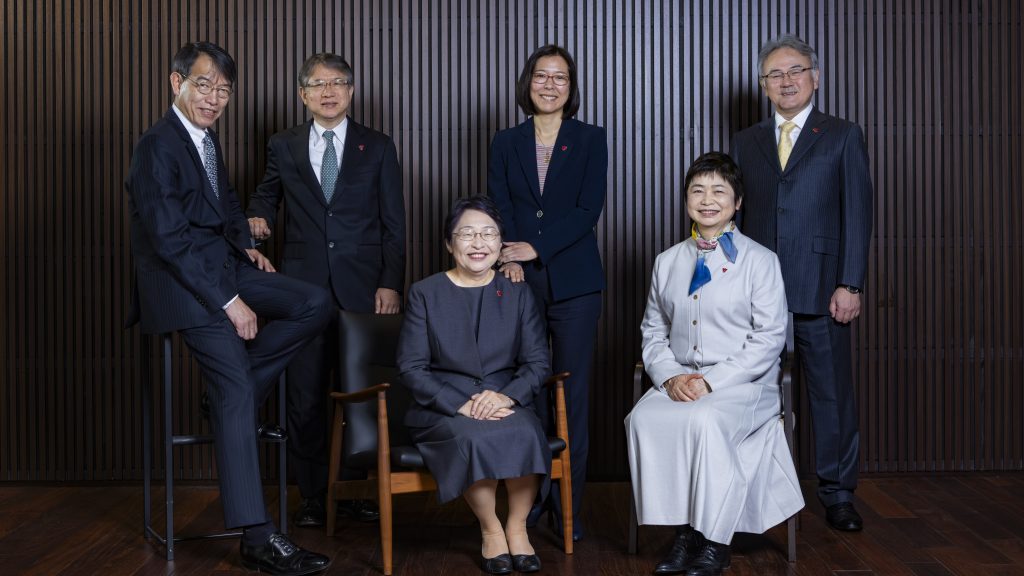Pioneering “Groundbreaking” Education in Japanese Universities

Professor Makoto Ikeda, Vice President for Academic Affairs, is recognized as a leading expert in CLIL (Content and Language Integrated Learning), a cutting-edge approach to English education. Professor Ikeda also has a strong track record in promoting quality assurance in education within the university. In this interview, he discusses the educational initiatives he has led so far and shares his new aspirations as Vice President.
Bringing CLIL – Learning Other Subjects through English – to Japan
Although I originally specialized in the history of English grammar, I am now also deeply involved in English education. I have worked on editing textbooks such as NEW HORIZON ENGLISH COURSE for junior high school students and FLEX ENGLISH COMMUNICATION for high school students. I also conduct more than 20 training sessions a year for junior and senior high school teachers. If you are an English educator, there’s a chance we’ve met somewhere along the way.
Among my areas of expertise is CLIL (Content and Language Integrated Learning), a method of learning that helps develop one’s thinking skills by studying non-language subjects in English. Now increasingly adopted at the elementary, junior high, and high school levels, this approach was introduced in Japan in the early 2010s through collaboration among fellow researchers (both in and outside of Sophia University) and me. Sophia University was among the first universities in the country to incorporate CLIL into its curriculum.
Today, all first-year students at Sophia are introduced to CLIL through the university-wide general education course Academic Communication. The course is designed to help students internalize, from the very start of their university journey, what it means to “think in English” and “collaborate in English.”
Overseeing the development of internal curricula—as well as managing syllabi, course registration, grading, and student surveys—are all part of the work involved in ensuring and improving the quality of education. This responsibility lies with the Vice President for Academic Affairs and the Center for Academic Affairs. I served as the Director of the Center for Academic Affairs for four years starting from the 2021 academic year. As of the 2025 academic year, I have assumed the role of Vice President for Academic Affairs.
From Proposing Initiatives to Putting Them into Action
As Director of the Center for Academic Affairs, one of my key focus areas was making academic credits more meaningful. You’ve likely heard claims that Japanese university students spend less time studying compared to their peers in other countries. A major reason for this is that students are enrolled in too many courses at the same time.
At Sophia University and many other institutions, students—especially in their early years—take more than 10 courses per week. This means it is virtually impossible to secure sufficient out-of-class study time for that many subjects. To solve this issue, we proposed placing a cap on the number of credits for which students can register, and we’ve also discussed options such as offering courses that meet twice a week, as well as requiring essential courses in the fourth year, when students typically take fewer classes.
I have also been involved in reforming the grading system. University grading tends to vary significantly depending on each instructor’s criteria, and Sophia University is no exception—average grades differ from one course to another. To address this, during the 2025 academic year we are piloting a guideline that sets a target range for each course’s average grade. I hope this initiative will prompt faculty and staff to reflect on what academic evaluation should mean at the university level and to consider which assessment methods are most appropriate.
As Director of the Center for Academic Affairs, my role also included proposing these reforms to the university’s executive leadership. Now, as Vice President for Academic Affairs, my responsibilities include setting policy as part of the executive team, gaining support within the university, ensuring the successful implementation of initiatives, and evaluating their outcomes. I hope to work closely with faculty and staff to provide an education that allows students to clearly recognize their growth and development—so that when they compare their abilities at the time of entering university with those at the time of graduation, their progress is unmistakable.
Transforming University Education in Japan—Starting from Sophia University
Sophia University has long been a place where students are highly motivated to learn, and faculty members have consistently risen to meet that enthusiasm. In course evaluations—another area overseen by the Vice President for Academic Affairs—the question that received the highest proportion of positive responses was: “Does the instructor show enthusiasm?”
On the other hand, unlike elementary and secondary school teachers, university faculty are not required to undergo formal training as educators. Even with strong enthusiasm, some may teach based solely on the kind of education they themselves received as students. In other words, there is still room for improvement in teaching at Sophia University—through initiatives like FD (Faculty Development), which is structured efforts to enhance faculty skills, the university has the potential to further raise the quality of its education.
Going forward, one approach I hope to further embed within the university through FD and other initiatives is a method of education that enhances students’ employability. While the term is still relatively unfamiliar in Japan, it refers to one’s ability to be employed and to remain employable through broadly applicable skills. Universities have a responsibility to prepare students to enter society. We continue exploring ways to foster employability so that students can enter the workforce with confidence.
CLIL, the enhancing academic credit integrity, and employability—these are all forward-looking, pioneering efforts. Past, present, and future, our commitment to boldly adopting initiatives that “do not yet exist” remains unchanged. Starting from Sophia University, we are determined to transform the landscape of higher education in Japan.
